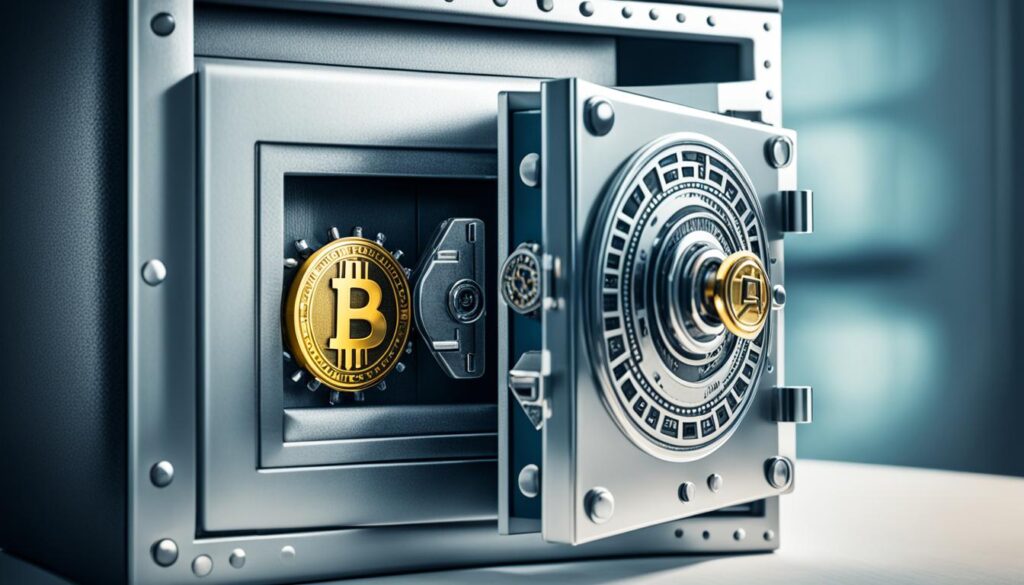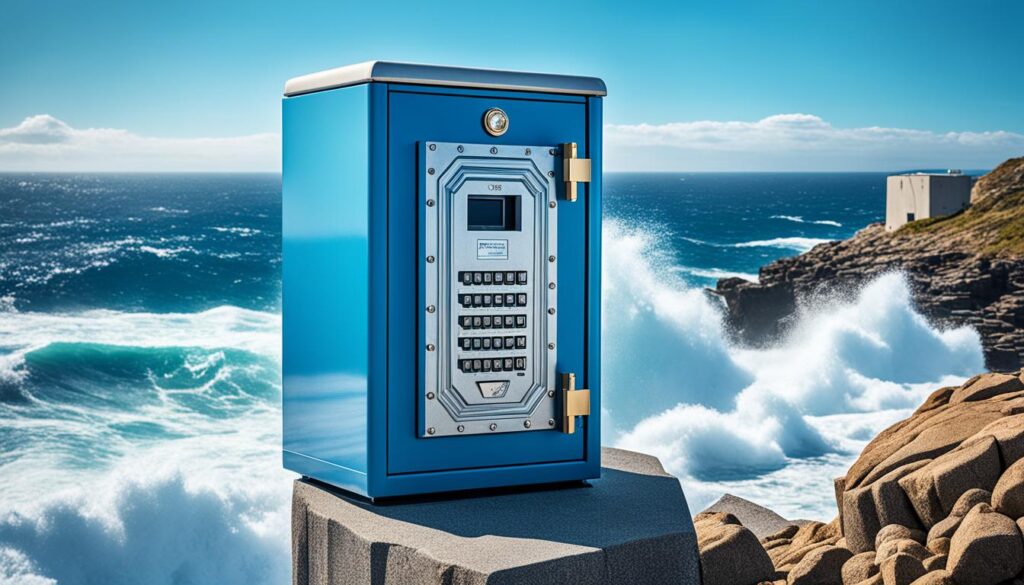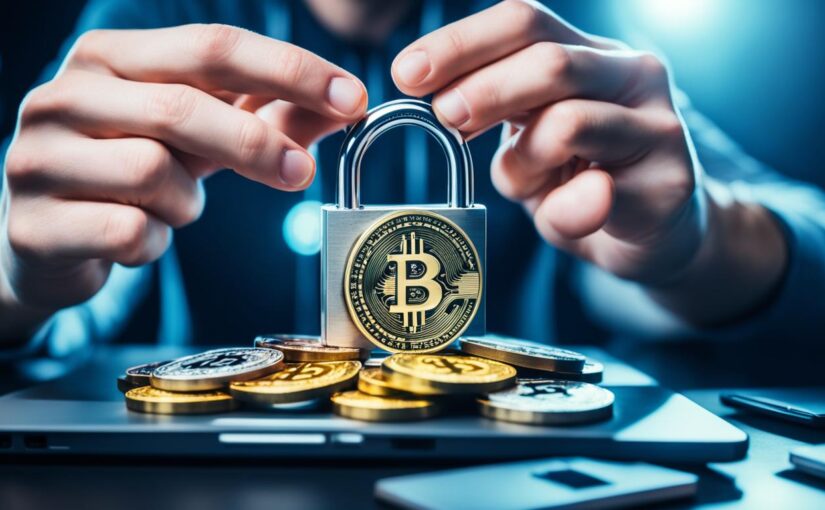The digital age has ushered in an era of innovation and convenience, especially within the realm of finance. Cryptocurrency, once a niche interest, has rapidly ascended to the forefront of investment opportunities. However, this rise in popularity comes with increased risks, as digital assets become prime targets for nefarious activity. Crypto fraud prevention is now more than a cautionary suggestion; it’s an essential practice for safeguarding crypto investments. From individuals to corporate entities, the emphasis on securing cryptocurrency transactions is a top priority to ensure the integrity of investments and transactions.
Entities like AML World Check play a pivotal role in maintaining cohesion between security and user experience, mitigating threats, and providing robust frameworks for secure cryptocurrency transactions. In the constantly changing landscape of digital currencies, investors are compelled to adapt proactive measures. By employing innovative methods and technologies designed for safeguarding crypto investments, the community can aspire to a future where digital assets can be traded and stored with peace of mind.
Key Takeaways
- Protecting digital assets is now obligatory due to the rising threat of crypto fraud.
- Robust crypto fraud prevention methods are vital for all cryptocurrency users.
- The assurance of secure cryptocurrency transactions hinges on active participation in security protocols.
- Services like AML World Check are instrumental in bolstering investor confidence and safety.
- Remaining vigilant and informed is key to safeguarding crypto investments against sophisticated scams.
Understanding the Landscape of Cryptocurrency Fraud
The digital currency ecosystem has experienced an explosive growth in recent years, which, regrettably, has been mirrored by a rise in crypto-related fraud. As cryptocurrencies continue to gain mainstream acceptance, the ingenuity of scammers evolves, necessitating a proactive stance in protecting against crypto scams and preventing fraudulent cryptocurrency transactions. Let’s dissect the anatomy of these scams and the blockchain security solutions forged to combat them.
The Evolution of Crypto Scams
Crypto scams have been as dynamic as the technology they exploit. Initially, rudimentary phishing attempts were the norm, aiming to steal login credentials. Nowadays, scammers use sophisticated methods such as social engineering, fake ICOs (Initial Coin Offerings), and Ponzi schemes to defraud investors. Criminals are continually refining their strategies to bypass existing security measures, which intensifies the never-ending arms race between scammers and those dedicated to blockchain security.
Identifying Common Crypto Fraud Schemes
Identifying the hallmarks of common crypto fraud schemes is crucial for investors to stay protected. Some prevalent scams include:
- Investment scams offering unrealistic returns.
- Malware that hijacks transaction addresses.
- Impersonation of well-known figures promoting fake ‘giveaways’.
- Pyramid schemes exploiting network marketing strategies.
Recognizing these red flags can serve as the first line of defense in safeguarding investments from dubious entities.
How Blockchain Technology is Exploited
Despite the robustness of blockchain technology, its features can be twisted to fraudsters’ advantage. The anonymity and irreversibility of blockchain transactions make recovery of funds practically impossible once lost. Nevertheless, blockchain itself also offers solutions for enhancing security, such as transparent transaction records and decentralized operation, leading to innovative blockchain security solutions.
| Scam Type |
Description |
Preventative Measures |
| Phishing Attacks |
Deceptive attempts to obtain sensitive information. |
Educational awareness and two-factor authentication. |
| False ICOs |
Promotion of non-existent or fraudulent initial coin offerings. |
Research and verification of ICO legitimacy. |
| Malware |
Software designed to infiltrate and damage systems for illicit gains. |
Utilize reputable antivirus solutions and maintain regular security audits. |
| Ponzi Schemes |
Fraudulent investing scams promising high returns with little risk. |
Understanding of cryptocurrency market operations and skepticism of ‘too good to be true’ offers. |
Ultimately, the best weapon in the arsenal for protecting against crypto scams is an informed and vigilant community of users, underpinned by robust blockchain security solutions. Awareness and education, coupled with advanced technology, can significantly reduce one’s vulnerability to the dark underbelly of the cryptocurrency world.
Essential Security Practices for Crypto Investors
Investing in cryptocurrency can be as lucrative as it is risky, with the digital nature of these assets often leaving them vulnerable to sophisticated cyber-attacks. To effectively shield their investments, crypto enthusiasts must heed the following crucial security practices, ensuring they are well-armed against the persistent threat of crypto fraud.
Setting Up Strong Authentication Methods
Two-factor authentication (2FA), while not infallible, significantly enhances account security beyond basic password protection. Leveraging something you know (password) with something you have (one-time passcode sent to a mobile device), makes illicit access to your account exponentially harder. Sophisticated investors also opt for hardware security keys, which require physical possession to authenticate account access, providing an additional safeguard against remote hacking attempts.
The Role of Secure Wallets in Asset Protection
Choosing a reputable and secure wallet is paramount for safeguarding your cryptocurrency holdings. Hot wallets, with their connectivity to the Internet, provide convenience but should be used for ‘walking-around’ money due to their vulnerability. Cold wallets, in contrast, offer heightened security for the bulk of one’s assets by remaining offline and immune to online hacking attempts. Solutions like Ledger and Trezor are often recommended for their robust security features.
Regular Security Audits and Updates
Performing regular audits and updating the software associated with your crypto holdings are vital measures. Staying abreast of the latest security patches not only thwarts known vulnerabilities but also fortifies your crypto safeguards as new threats emerge. It’s a proactive step towards fraud prevention for digital currencies.

| Security Feature |
Description |
Impact on Security |
| Two-Factor Authentication |
An additional layer of security requiring two separate methods of verification. |
Greatly reduces the chances of unauthorized account access. |
| Hardware Security Keys |
Physical devices used to approve account logins and transactions. |
Provides an extra barrier against remote hacking attempts. |
| Secure Wallets |
Software or hardware used to store digital currencies safely. |
Essential for the protection of large sums and long-term investments. |
| Software Updates |
Regularly updated crypto-related software ensures up-to-date protection. |
Keeps defenses strong against the latest known threats. |
Crypto Fraud Prevention: How to Safeguard Your Digital Currencies
In the digital age, where cryptocurrency is becoming increasingly mainstream, preventing crypto scams and ensuring secure cryptocurrency transactions have never been more crucial. Cybersecurity experts widely agree that a proactive approach is essential in safeguarding against crypto fraud. To assist in this endeavor, the following steps offer a robust strategy for individuals looking to protect their digital currencies against fraudulent activities.

- Choose Renowned Exchange Platforms: Opting for exchanges with a strong track record in security is the first line of defense. Look for platforms that implement strict verification processes and provide robust security features such as cold storage for funds and insured wallets.
- Educate Yourself on Phishing Techniques: Being aware of the various forms of phishing can help you avoid malicious attempts to gain access to your accounts. Never click on suspicious links and always verify the authenticity of communication supposedly from service providers.
- Use Reputable Security Tools: Employing reliable security tools can help monitor and protect your accounts from unauthorized access. Consider engaging services like AML World Check for their advanced monitoring capabilities to prevent unauthorized transactions.
- Secure Your Private Keys: Ensure that your private keys, which grant access to your cryptocurrency, are stored securely and never shared. Using hardware wallets can greatly enhance the safety of your private keys.
- Keep Software Updated: Regular updates to your wallet software and associated applications are essential. These updates often include security enhancements that protect against newfound vulnerabilities.
- Two-Factor Authentication (2FA): Enable 2FA on all services that offer it for an added layer of security beyond just a password.
By taking these measures, investors can create a multi-layered defense strategy against the growing threat of crypto fraud. Incorporating recognized security services and staying educated on the latest scamming techniques are integral components of this comprehensive approach to digital currency protection.
Always remember: Security in the world of cryptocurrency is not an afterthought; it is the bedrock upon which trust and reliability are built.
Blockchain Security Solutions and How They Work
As the digital landscape continues to expand, blockchain security solutions are becoming increasingly critical in providing robust protection against fraudulent activities. These advanced technologies empower users and organizations to defend their digital assets effectively. By understanding the mechanisms of blockchain security, stakeholders can appreciate the layers of defense that these solutions provide.
Decentralization as a Defense Against Fraud
The decentralized nature of blockchain acts as a foundational security feature. By distributing data across a network of computers, blockchain technology eliminates the risks associated with having a single point of failure. This decentralization ensures that any attempt at fraud requires a significantly higher level of effort to compromise the system as a whole, thereby offering a natural resistance to various security breaches.
Smart Contract Safeguards
Smart contracts are self-executing contracts with the terms of the agreement directly written into lines of code. They provide a high level of transparency and are immutable once deployed, which means they cannot be altered or tampered with. The built-in smart contract safeguards play a pivotal role in automating and securing digital transactions, reducing the potential for fraud and human error.
Third-Party Security Services and Their Benefits
Apart from the inherent security features of blockchain, the integration of third-party security services further fortifies the system. These services offer additional layers of security through continuous monitoring, regular audits, and by utilizing sophisticated threat intelligence to preemptively identify potential vulnerabilities.
| Feature |
Description |
Benefits |
| Decentralization |
Distribution of data across multiple nodes |
Reduces risks of single points of failure and centralized attacks |
| Smart Contracts |
Automated execution of contracts stored on blockchain |
Ensures integrity by enforcing terms and eliminating manual errors |
| Security Services |
Third-party monitoring and intelligence |
Offers proactive security and audits to prevent unforeseen exploits |
By embracing blockchain security solutions and incorporating smart contract safeguards and third-party security services, stakeholders can significantly enhance the security of their blockchain-based transactions and assets.
Conclusion
The journey of safeguarding digital currencies from the perils of fraudulent activities is continuous, requiring both caution and knowledge. As we traverse this digital terrain, it is paramount that investors employ proactive strategies for preventing crypto scams, and maintain a reliable framework for fraud prevention for digital currencies. This not only involves embracing the advanced tools at our disposal but also fostering an attitude of perpetual alertness.
Mitigating Risks to Secure Crypto Assets
Mitigation of risks is neither serendipitous nor passive; it demands action and astuteness. By implementing robust security measures and consulting reliable resources, investors can create impenetrable defenses for their cherished digital assets. This approach pivots not just on safeguarding but also on understanding the landscape of cyber threats, adapting swiftly and efficiently to new risks.
Staying Ahead of Crypto Criminals
It is a reality that as technology evolves, so do the stratagems of crypto criminals. To outpace them, it is critical to remain vigilant and keep abreast of the latest developments in the world of cryptocurrency security. Anticipate the moves of potential fraudsters by enriching your knowledge base and investing in services that are designed to thwart the cunning endeavors of these adversaries.
Maintaining Vigilance and Educating Yourself
In the quest for ultimate crypto security, the power lies in education. Empower yourself by staying informed on the most current cryptocurrency security measures, deepening your understanding of the industry’s best practices, and continually educating yourself on the nuances of digital asset security. Through education, vigilance, and the utilisation of cutting-edge safeguards, each investor becomes a sentinel against the dark specter of crypto fraud.





